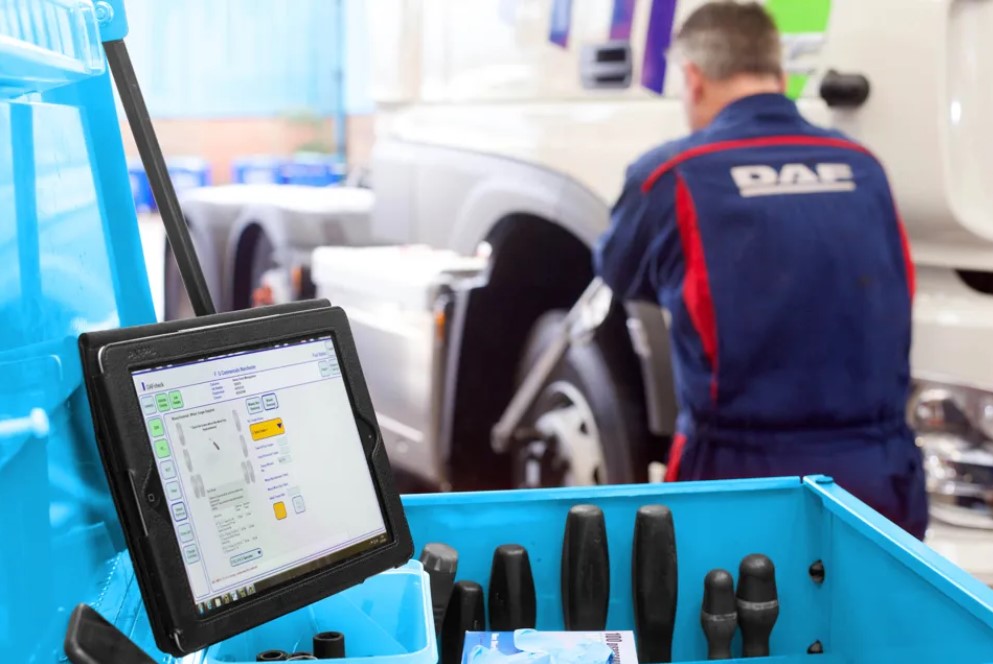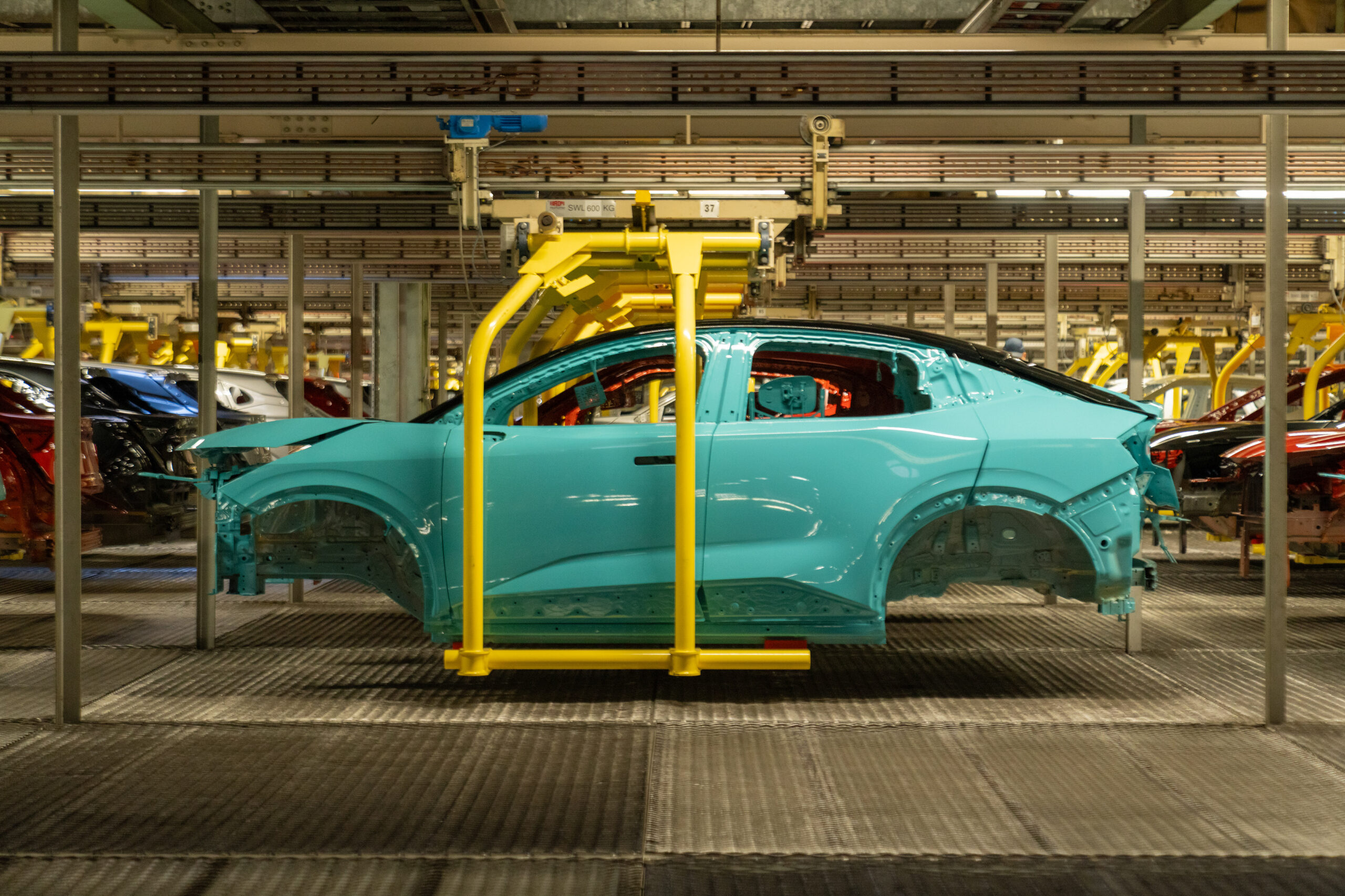
In an age when safety is paramount and quality service should be a given, it is somewhat surprising that a robust, UK-wide recognised standard for commercial vehicle maintenance was not in place in the 21st century.
That changed on 29 April this year when the Institute of Road Transport Engineers introduced the Maintenance Provision Rating Scheme (MPRS), a new national benchmark for how the UK maintains its commercial fleets.
Launched at the Commercial Vehicle Show, it is designed to be the industry benchmark for the commercial vehicle maintenance sector, aiming to raise standards and build confidence in the industry.
In a sector where compliance, safety, and efficiency are non-negotiable, the MPRS offers something that’s long been missing: a clear, independently verified standard for workshop competence.
Developed over 18 months by the Institute of Road Transport Engineers (IRTE), in close collaboration with government and industry, the MPRS has been hailed as a potential game-changer for operators, OEMs, and service providers alike.
All OEMs are actively engaging with the scheme and have committed to bringing their workshop networks into MPRS. Since launch it now boasts a network of 64 accredited workshops and the number is expected to increase by a few hundred in the coming months as all OEMs are brought through the scheme.
Leo Hubbard, Technical Product Manager, said: “MPRS is central to our long-term plan at IRTE and the wider SOE. We’re using the scheme to set a bar now that keeps on rising. Each rating is more than a certificate – it feeds the data and insight we need to keep pushing standards, sharpening skills and making road transport maintenance safer and more professional year after year.”
Commercial vehicle operators are under relentless pressure to ensure their fleets meet increasingly complex safety, environmental, and compliance demands. Yet the workshops they rely on for maintenance – particularly third-party and outsourced facilities – have, until now, operated in a largely unregulated environment.
“MPRS can be a beacon of confidence for operators,” said Phil Lloyd, Head of Engineering Policy at Logistics UK. “It provides a trusted way for maintenance providers to demonstrate their competencies, reassuring operators that their vehicles are being maintained by workshops serious about quality, compliance and safety.”
The need for such a framework has been building for years. As well as the IRTE, the collaboration has included the Department for Transport, DVSA, and the Traffic Commissioners.
It was also shaped by voices from across the sector, including the Road Haulage Association (RHA), Society of Motor Manufacturers & Traders (SMMT), British Vehicle Rental & Leasing Association (BVRLA), Confederation of Passenger Transport (CPT), and the National Franchised Dealers Association (NFDA).
And crucially, it wasn’t developed in a vacuum. Daimler Truck UK and DAF Trucks played an active role during the pilot phase, offering their dealer networks as test cases and helping shape scoring criteria.
The MPRS is, however, a voluntary scheme that rates maintenance providers on the competency of their staff, the quality of their facilities, and their commitment to compliance. The rating system includes five tiers:
- Qualified: Meets minimum industry standards in tools, equipment, and personnel.
- Bronze: Demonstrates improving compliance with limited gaps.
- Silver: Operating at a strong level of professional competence with additional commitments to quality.
- Gold: Exemplary standards across all areas of operation, including investment in technology and staff.
- Platinum: The elite benchmark, defined as “future-ready” and operating at the cutting edge of maintenance technology.
To achieve Platinum status, a workshop must go far beyond basic compliance. It must have multiple advanced technicians, offer ADAS calibration and LOLER inspections, and possess facilities that meet or exceed Authorised Testing Facility (ATF) standards.
Half of the workshop staff must be trained in gas/hydrogen technologies, and half in electric/hybrid systems—reflecting the changing profile of today’s fleets.

Assessments are robust: while Qualified and Bronze ratings rely on independent assessment of self-declarations, higher levels – Silver, Gold and Platinum – require verification from approved third-party auditors.
Among the strongest early supporters of MPRS is Daimler Truck UK, which played a pivotal role in its development and has already committed to rolling out the scheme across its entire dealer network.
Amy Carter, Head of Product at Daimler Truck UK, said: “As an OEM, Daimler Truck UK has welcomed being involved in the development of the MPRS. The commercial vehicle industry has needed a consistent, nationwide rating scheme for a long time.
“We believe MPRS will help raise the bar in aftersales and, in the longer term, we hope customers start asking workshops for their MPRS ratings – and that dealers start promoting their own scores.”
According to Carter, Daimler Truck already conducts regular assessments of its dealer network – but MPRS adds an important independent benchmark to validate those standards and provide greater transparency to customers.
This level of accountability is crucial as OEMs face mounting pressure to support fleets through electrification, digital diagnostics, and evolving compliance demands. By embedding MPRS into its dealer operations, Daimler Truck is not only embracing accountability but helping to lead the sector forward.
It’s easy to dismiss rating schemes as superficial. But for operators navigating a growing web of regulations, vehicle complexity, and service variability, MPRS has the potential to transform how maintenance is sourced, benchmarked, and trusted.
For one, it provides an accessible and verifiable reference point for operators choosing between workshops – particularly when outsourcing to third parties. Secondly, it gives workshops a pathway for continuous improvement, encouraging investment in training, tooling, and technology.
Perhaps most importantly, it helps identify – and address – non-compliant, unsafe practices that could put lives and reputations at risk.
With fleets increasingly reliant on outsourced maintenance, and with electrification adding new layers of complexity, there’s never been a more critical time for a credible quality benchmark.
While MPRS is currently voluntary, its backers hope that adoption will grow quickly – especially if operators begin requiring ratings as part of their procurement and tendering processes.
As Carter from Daimler Truck UK points out, customers themselves have a role to play: “We hope they’ll start asking workshops for their MPRS ratings. That kind of demand will push the industry to improve.”

Specification has also impacted on the numbers, with buses without air conditioning expected to continue underperforming.
He added: “The LCV auction halls have been rammed with buyers which is backed up with exceptional numbers of users logged on to every sales event.
“While our LCV auction sites are jam packed, I must give huge credit to our operational teams that are working increased hours to keep the wheels turning.
“It’s been a perfect start to 2025, and I am predicting a very strong finish to Q1.”
Also, national vehicle remarketing specialist Aston Barclay has reported record buyer attendance, both physical and online, across its centres during the first week of its new sale schedule which began in early February.
The auction house saw a 35% increase in attendees across the week.
Aston Barclay’s site at Donington Park, which was recently announced as its new commercial super centre, saw a significant improvement in attendance for its dealer and commercial launch auction, with an 108% increase in physical buyers heading to the halls to bid, as well as a 123% increase in online buyers.
A newly launched dealer sale in Wakefield – which takes place weekly on a Tuesday – saw a 30% increase in physical buyers and a similar level (35%) of new buyers logging on to bid and buy.
Gordon Cockle, chief remarketing officer at Aston Barclay, said “With our new sales schedule offering higher volume levels and more variety in the stock we are offering to our buyers, it was great to see so many of our customers head down to the halls and celebrate with us during our launch events.
“We have had some fantastic feedback from both buyers and vendors on the improvements we have made to the auction programme, and this has come to fruition through the fantastic conversion rates we have seen as a result of a busy and bustling hall.
“Across all our centres, we have had a fantastic start to 2025, welcoming new vendors across our fleet, dealer and commercial sales.”
According to the National Association of Motor Auctions (NAMA), its members in the LCV segment have recently reported an increase in market stock compared to the period from 2021 to 2022.
Paul Hill, spokesperson for NAMA said: “Overall, NAMA members are reporting a strong start to the year. It is encouraging to see that the market is in a healthy position, with forecasts for March and April also remaining positive.”


